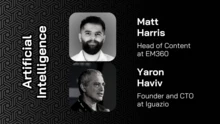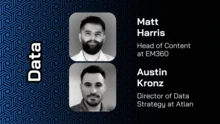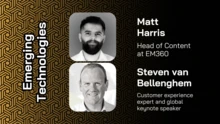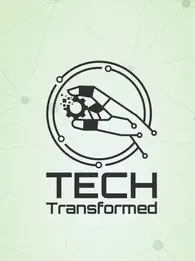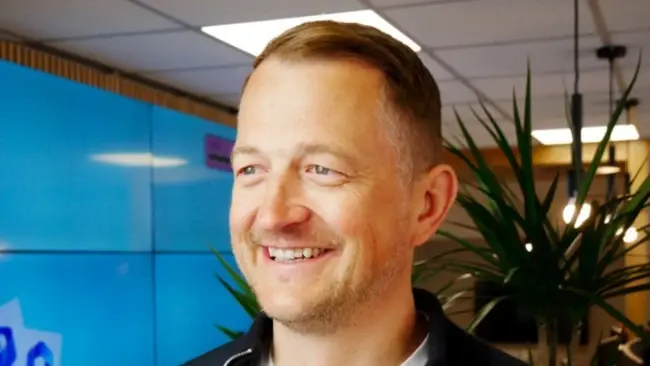
How can you effectively navigate IT evolution and digital transformation in today's world? EM360's Head of Content Matt Harris speaks to Rob Young, CEO of Infinity Group, about how SMEs can integrate LLMs safely and securely.
MATT: You founded Infinity Group. Can you tell us a bit about your company, and how the industry has evolved since launching 2001?
ROB: Infinity Group helps businesses to level up their IT strategy and accelerate digital transformation. When we started out, we focused solely on managed services, specialising in IT and telecoms. Our pivotal partnership with Microsoft led us to concentrate on embedding Microsoft's Office suite, CRM system and other business applications. Their shift to cloud computing prompted us to expand our portfolio to include the Power Platform, Dynamics 365, and Business Central. Now we support over 500 businesses nationwide.
Really the expansion of the solutions we offer has mirrored the wider industry evolution from on-premises infrastructure to the cloud. Cloud has really revolutionised service delivery. A big part of our role is consultative—helping businesses develop a cohesive cloud strategy, rather than a more piecemeal and less intentional approach. This is also a foundational step to ensure businesses’ preparedness for the AI era, which is starting to become much more accessible to businesses of all sizes. Large Language Models (LLMs) and AI algorithms more generally need data to be centralised and organised in the cloud, so it can be effectively trained on these reservoirs of information.
MATT: What advice can you give to entrepreneurs looking to scale their company?
ROB: Scale is what every entrepreneur wants, and there’s a lot of focus these days on going down the VC route, getting lots of funding, building a product, and then scaling rapidly. While this is right for some businesses, there are different routes. Bootstrapping in the early days can allow you to determine a niche in the market you want to serve, and then build out from there. This is how we scaled at Infinity Group, and I believe being lean in the early days allowed us to adapt quickly and seize opportunities when we saw them (and learn from failures as well!). Getting the right team in place is also key, one that is motivated, dependable and has a strong sense of comradeship as well. This has always been the foundation for our growth. And, of course, as an IT provider, I would say getting the right technology in place is increasingly important to scaling your operations efficiently
MATT: You recently acquired Redkite CRM. Can you tell us more about your UK expansion plans?
ROB: Focusing on providing more tailored solutions to specific verticals is a big part of our expansion drive. In this vein, we acquired Redkite CRM in November, one of the few specialist CRM providers serving the social housing associations. RedKite CRM gave us the human expertise and industry knowledge to provide more tailored solutions to serve the unique challenges and processes required in the social housing sector. These include digitising communications and automating processes to manage issues to do with damp and mould, rent arrears, customer services and more. This sector is really crying out for digitisation as they transition from legacy systems. Overall, we have seen, a 40% customer growth over the past year and we are excited to see what the future brings.
MATT: How are you helping businesses inject AI and LLMs into their operations
ROB: Business owners see tools like ChatGPT but often don’t know how they can benefit from the productivity gains AI promises while also doing so securely. We work with Microsoft Copilot, which is developed in partnership with OpenAI, the parent company of ChatGPT, and runs on the same data model. The key difference is that Copilot ring-fences your organisational data and does not feed it back into the public data source. This means it remains confidential while still helping to drive personalised results. Many workers today don’t realise that they could inadvertently be leaking sensitive data by using ChatGPT directly.
Microsoft Copilot’s capabilities are also integrated into Microsoft 365 which puts the power of AI at employees’ fingertips while making it useful in the specific context they need. Trained on extensive business data, such as emails, documents, and CRM data, it enables hyper-personalisation—for instance, generating automated client emails and instantly creating PowerPoint reports. This AI-driven approach extends to chat applications, particularly in sales and customer service. It’s akin to having a sophisticated virtual assistant readily available.
MATT: SMEs are a particular target of the growing threat of cyber-attacks. How can then protect themselves and their customers?
ROB: Cyber-attacks are certainly an increasingly real and present danger, and SMEs are particularly exposed, with 54% of UK SMEs stating they had experienced some form of cyber-attack in 2022, according to HSBC. The biggest in a company’s armour is often its human workforce and peoples’ susceptibility to succumb to increasingly advanced phishing schemes. We help businesses integrate Microsoft Defender as a security guard, providing antivirus and email scanning for robust data protection. This streamlines the implementation of multi-factor authentication, adding an additional security layer, and configuring conditional access policies to fortify defenses further. We want to help businesses of all sizes navigate the digital landscape securely.
MATT: What attributes make a great business leader?
ROB: I think as a leader you of course have to give the company direction—a vision—but listening and communicating with your team is a big part of bringing them on the journey. At the end of the day, you can’t realise the goals you have for your business on your own, and you also need to have your ideas challenged and tested. You won’t always be right. At Infinity, we’re a real mix of technical specialists and those in sales teams who are speaking to customers daily and are very close to the changing IT challenges they are facing. You need to always be listening and bringing together these different perspectives to see where the market is heading, the opportunities that may be out there; as well as the internal and operational challenges you face. Then you are best placed to decide the direction to take.





